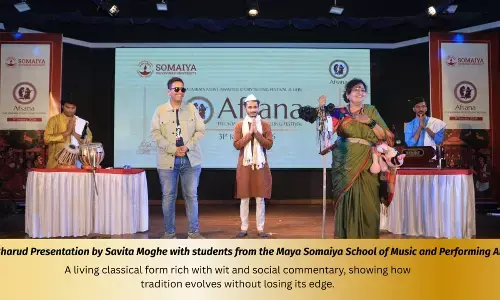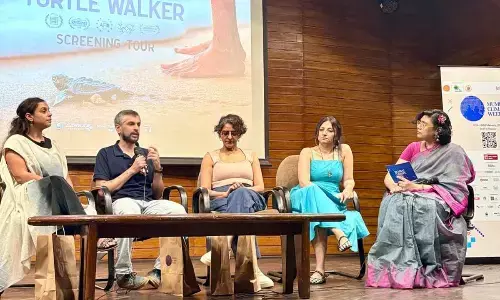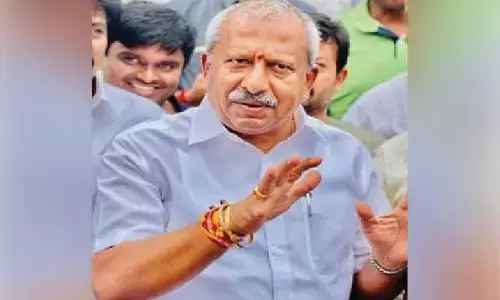300 univs to see national rollout of four-year undergraduate programme
Share :

Delhi University (File/Photo)
From the coming new academic session, more than 300 universities across the country can implement the Four-Year Undergraduate Programme (FYUP). However, this will not be mandatory as students will have the option to pursue FYUP or three-year undergraduate programme.
New Delhi: From the coming new academic session, more than 300 universities across the country can implement the Four-Year Undergraduate Programme (FYUP). However, this will not be mandatory as students will have the option to pursue FYUP or three-year undergraduate programme.
According to UGC, students will get a four-year undergraduate 'UG Honours' degree with research specialisation. At present, FYUP has been implemented in about 150 universities across the country from the current session 2023-24. According to UGC Chairman Professor M. Jagadish Kumar, this number will double in the next session.
FYUP was implemented by 105 universities across the country at the beginning of the academic session 2023-24. The universities implementing four-year undergraduate courses included 19 central universities, 24 state level universities, 44 deemed universities and 18 private universities. These include Delhi University, Aligarh Muslim University, Jammu Central University, Visva Bharati University, Rashtriya Sanskrit University and Maulana Azad National Urdu University. Now the number of these universities has increased to 150.
Under the framework of FYUP, UGC has provided students the option to pursue a three-year undergraduate degree as well as a four-year Honours degree, following the provisions of the National Education Policy (NEP).
According to the UGC Chairman, students will be provided with a three-year UG degree on completion of 120 credits and FYUP Honours degree on completion of 160 credits in 4 years.
Students wishing to pursue research specialisation will have to undertake a research project in the four-year undergraduate course. With this, they will get an Honours degree along with research specialisation.
Experts believe that the new draft of the Four Year Undergraduate Programme (FYUP) will help students wishing to pursue higher education abroad. The craze among Indian students for studying abroad is increasing year by year. Till November last year, more than 6 lakh Indian students went abroad for higher education, whereas in 2021 this number was 4.44 lakh.
As per these figures, Canada, Germany, Australia, United States and Italy are the top 5 countries where more Indian students prefer to study. According to the new draft of UGC, now students will be able to get undergraduate 'Honours' degree only after completing four years instead of three years.
UGC says that the draft curriculum and credit framework of FYUP is as per international standards. One advantage of international equality in the level of education is that Indian students will get more opportunities than before for higher education in universities of America and Western countries.
However, some academics do not agree with this.
Renowned educationist CS Kandpal said, “FYUP will help those students who are interested in getting admission in many famous universities of America. But there is a need to teach such skills in the programme so that employment can be increased. Such skills will also be very helpful for students studying abroad. These skills may include communication, adaptability, foreign language, and self-awareness.”
“The basic objective was to include more number of students in the three-year programme in the country. FYUP is an extension of the three-year degree programme. Like in schools you go to class, prepare notes and give exams. You get a grade according to your performance in the exam. With this type of education, students are not prepared to pursue graduation as well as career in good universities abroad, because their aim is only to get admission in a foreign university. Institutions which are planning to start FYUP need to think about this,” he added.








